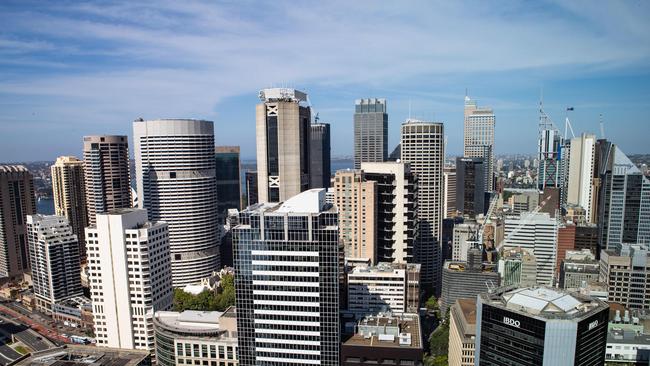Bosses face tough job preparing company budgets amid Ukraine war, looming interest rate hikes


Corporate budgets are important because attached to them are key performance indicators for executives which come with bonuses for better than budget performance.
Set the KPI’s too low and executives are not stretched. Set them too high and morale drops. And in the 2022-23 budget deliberations many enterprises are noticing attitude differences between executive age levels. The younger executives are not worried by the hazards ahead while older executives, who have experienced the tough times, are more cautious.
Share markets and Government budgets forecast a continuation of good times. Bond markets warn a US recession is looming.
Clearly the Ukraine war, Russian sanctions and supply chain issues will impact global growth but Australian agriculture, mining and banking are trading well and filling shareholder wallets.
I don’t have a crystal ball but I will set out some scenarios which corporate treasurers can match against their own conclusions.
The Australian consumer market is divided between strong affluence in many areas of the middle class, including well remunerated tradies, and those that are doing it tough. But jobs abound, albeit that base pay rates are being eroded by the rising cost of living.
With both high house prices and the regular dividend showers from miners and banks adding to confidence, there‘s no reason to believe that the affluent will not keep spending. They may increase their overseas trips but they are unlikely to match pre Covid levels.
In addition during 2022-23, we will see many more migrants and students to relieve labour shortages while longer term the recognition of Indian qualifications will add to the availability of professional skills.
And among the less affluent who are struggling with the cost of living, most have employment and that’s not likely to change. Treasury is forecasting that wages will rise 3.25 per cent in 2022-23 which will also kindle spending. If the ALP wins the election wages may rise further.
Those scenarios lead to two questions that all treasurers must ask: is the ultimate demand for our product or services from the affluent sectors of the community or are we serving those who are finding it tough. If the ultimate market is government then again a demand assessment must be made in line with government budgetary spending priorities.
Secondly is the enterprise able to pass higher costs onto customers? These are vital questions that impact all enterprises.
As the share market is telling us, positive answers to those questions will enable a continuation of good times. But then we have the world environment. And to help us navigate I want to use the views of JPMorgan’s chief executive Jamie Dimon:
*On US interest rates he believes that rate rises could be significantly higher than the markets expect, but if the Federal Reserve gets it right, the US can have years of growth, and inflation will eventually start to recede.
*Because of the uncertainty about how the Ukraine conflict and the sanctions on Russia, will conclude at the very least it will slow the global economy, particularly in Europe. It will impact supply chains, especially those involving energy.
Here in Australia, we will be most affected by the impact on China which is currently stimulating its economy.
Again those enterprises that can pass on the cost increases and can manage slower global growth should be able to anticipate a continuation of good times in line with share market expectations.
But there is a chilling warning in the Dimon predictions for Australia.
If Dimon is right and US interest rates are going to rise faster then the market expects then that will have repercussions for Australia. Our inflation is currently much less than the US. The general expectation is that our Reserve Bank will lift interest rates by between 1.25 and 1.5 per cent and while that will slow housing it will not cause massive bank debt problems. The economy will ride through it.
But if higher than expected wage and other cost rises boost Australian inflation towards US levels then we face much higher interest rates.
If a significant gap opens up between Australian and US rates then, irrespective of what might happen in the commodity markets, our dollar will come under pressure from traders. Again we may need to increase rates further. Because too many Australians have too much mortgage debt interest rate rises of, say, 2.5 per cent will have a severe impact.
If that happens in 2022-23 then the optimistic budgets will be wrong because we will have a nasty time. Optimistic budget preparers hope that any such event will not take place until after June 30, 2023. And with luck, it may be a short sharp blow.







Around Australia tens of thousands of corporate treasurers and chief executives are facing one of the hardest tasks they have ever encountered – preparing their budgets for 2022-23 in the midst of the Ukraine war and looming higher interest rates.